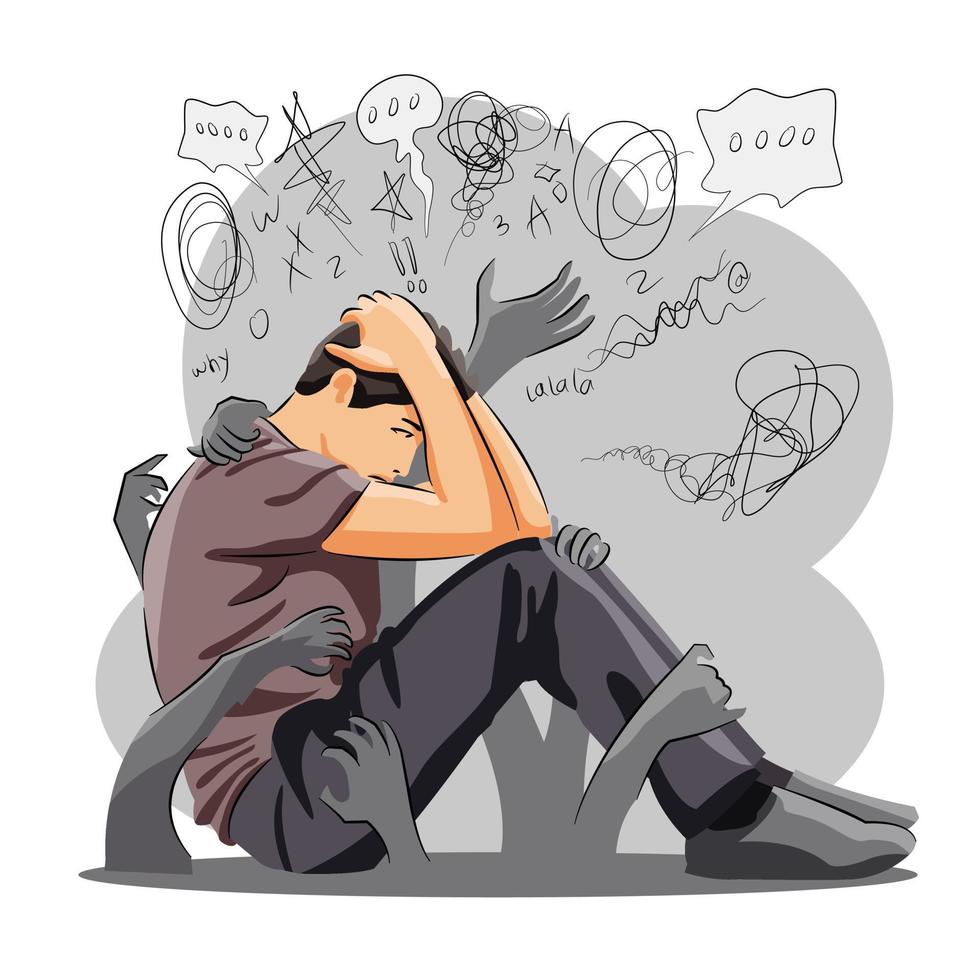Depression is a common and serious mental health condition that affects how a person feels, thinks, and behaves. It goes beyond normal sadness or feeling down for a day or two — depression involves persistent feelings of sadness, hopelessness, or emptiness that last for weeks or longer and interfere with daily life.

Key Symptoms of Depression:
(You don’t need to have all of these to be diagnosed)
- Feeling sad, empty, or hopeless most of the day
- Loss of interest or pleasure in activities once enjoyed
- Changes in appetite (eating too much or too little)
- Trouble sleeping or sleeping too much
- Fatigue or loss of energy
- Difficulty thinking, concentrating, or making decisions
- Feelings of worthlessness or guilt
- Thoughts of death or suicide
Causes of Depression:
Depression can be caused by a combination of biological, psychological, and environmental factors. On a biological level, imbalances in brain chemicals such as serotonin, dopamine, and norepinephrine are often linked to depressive symptoms. Genetics also play a role—people with a family history of depression may be more likely to develop it. Psychologically, negative thinking patterns, low self-esteem, or a history of trauma or abuse can increase the risk. Environmental stressors such as the loss of a loved one, financial difficulties, isolation, or ongoing life pressures can also trigger depression, especially when combined with other risk factors. It’s important to remember that depression is complex, and the causes can vary widely from person to person.
Biological factors: Brain chemistry, genetics, hormones
Psychological factors: Low self-esteem, chronic stress, trauma
Environmental factors: Abuse, loss, isolation, financial or work stress

Is Depression Treatable?
Yes, depression is treatable, and many people are able to recover or manage their symptoms with the right support. Treatment often involves a combination of approaches, such as therapy, medication, lifestyle changes, and social support. Talking therapies like Cognitive Behavioral Therapy (CBT) are effective in helping individuals understand and change negative thought patterns. In some cases, antidepressant medications may be prescribed to help balance brain chemicals linked to mood. Healthy habits—like regular exercise, proper sleep, and reducing stress—can also play a key role in recovery. Support from friends, family, or mental health professionals can make a big difference, and reaching out for help is a strong and important first step toward feeling better.
Common Treatments for Depression:
- Therapy (Counseling):
- Cognitive Behavioral Therapy (CBT) is especially effective—it helps people change negative thought patterns and behaviors.
- Other types, like interpersonal therapy or psychodynamic therapy, can also be helpful depending on the individual.
- Medication:
- Antidepressants, such as SSRIs (like fluoxetine or sertraline), can help balance brain chemicals linked to mood.
- Medication is often most effective when combined with therapy.
- Lifestyle Changes:
- Regular exercise, healthy eating, consistent sleep, and reducing stress all support mental health.
- Avoiding alcohol and drugs is also important, as they can worsen depression.
- Support Systems:
- Talking to trusted friends or family, joining support groups, or seeking help from a mental health professional makes a big difference.
- Self-Help Strategies:
- Mindfulness, journaling, setting small goals, or doing activities that bring joy can support recovery.
